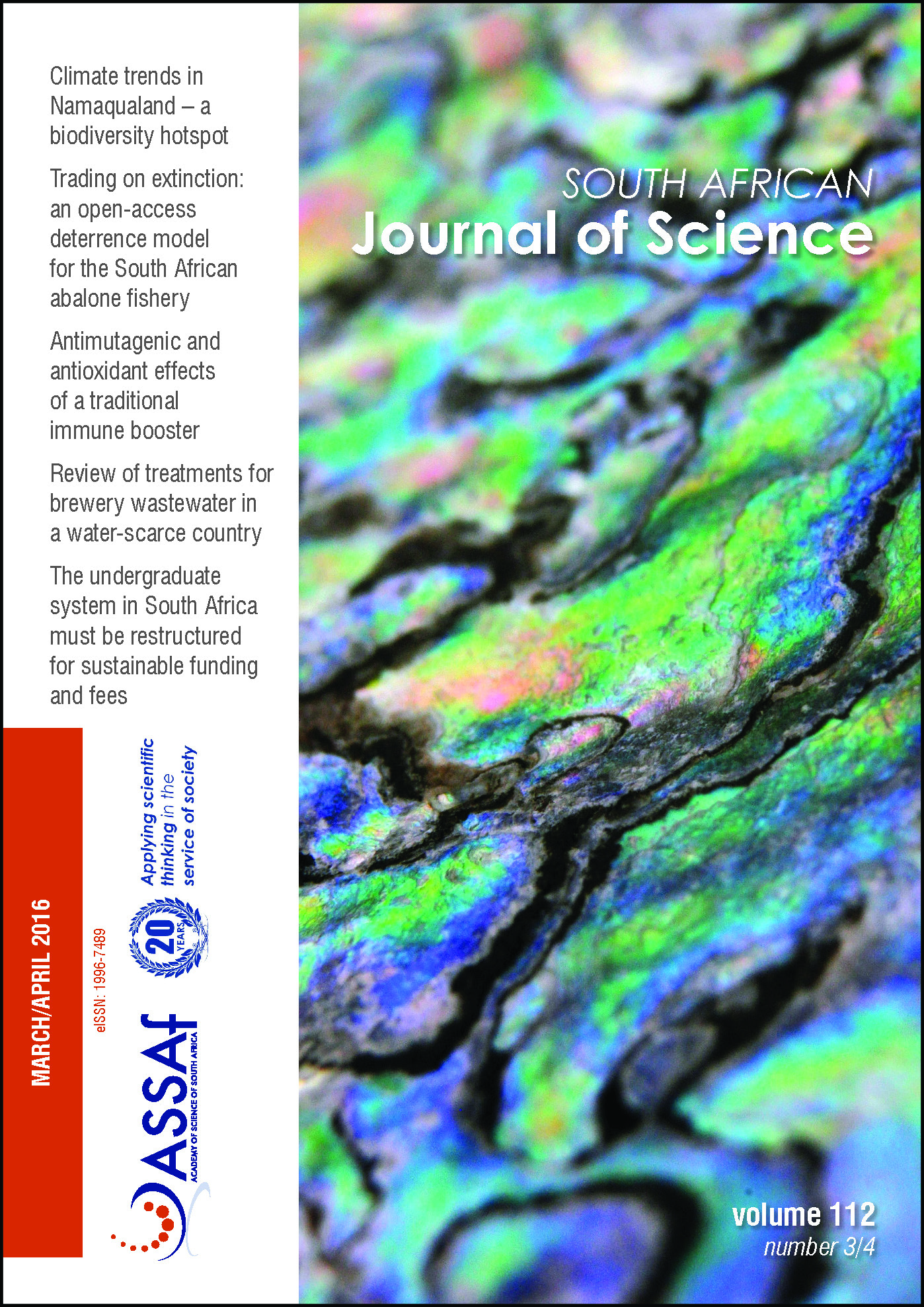Enhancing climate governance through indigenous knowledge: Case in sustainability science
DOI:
https://doi.org/10.17159/sajs.2016/20140286Keywords:
climate change, local participation, disaster management, EBA, mitigation, CBAAbstract
The current tempo of climate change strategies puts the notion of sustainability in question. In this philosophy, mitigation and adaptation strategies ought to be appropriate to the sectors and communities that are targeted. There is a growing realisation that the effectiveness of both strategies hinges on climate governance, which also informs their sustainability. The application of the climate governance concept by the technocratic divide (policymakers and climate practitioners) to communities facing climate change impacts, however, is still a poorly developed field, despite extensive treatment by academia. By drawing heavily from conceptual and analytical review of scholarship on the utility of indigenous knowledge (IK) in climate science, these authors argue that IK can be deployed in the practice of climate governance. It reveals that the merits of such a deployment lie in the understanding that the tenets of IK and climate governance overlap and are complementary. This is exhibited by examining the conceptual, empirical and sustainability strands of the climate governance-IK nexus. In the milieu of climate change problems, it is argued that the basic elements of climate governance, where actions are informed by the principles of decentralisation and autonomy; accountability and transparency; responsiveness and flexibility; and participation and inclusion, can be pragmatic particularly to communities who have been religiously observing changes in their environment. Therefore, it becomes necessary to invigorate the participation of communities, with their IK, in designing climate change interventions, which in this view can be a means to attain the objectives of climate governance.
Published
Issue
Section
License

This work is licensed under a Creative Commons Attribution 4.0 International License.

All articles are published under a Creative Commons Attribution 4.0 International Licence
Copyright is retained by the authors. Readers are welcome to reproduce, share and adapt the content without permission provided the source is attributed.
Disclaimer: The publisher and editors accept no responsibility for statements made by the authors
How to Cite
- Abstract 1931
- PDF 1546
- EPUB 189
- XML 208












.png)